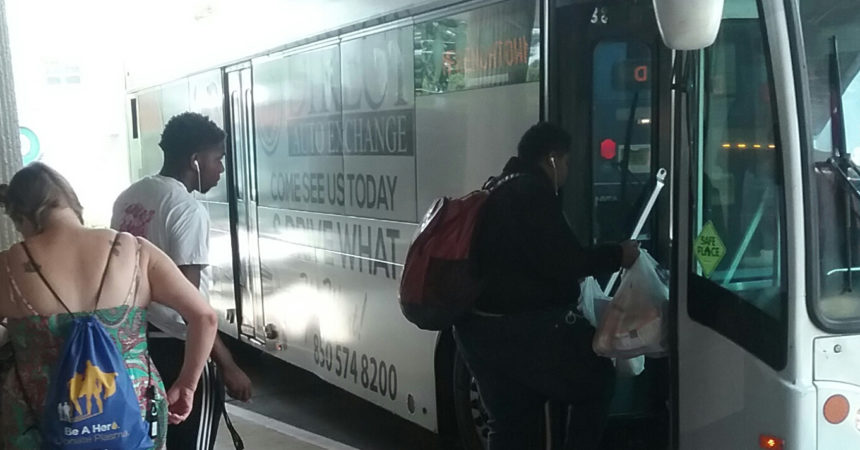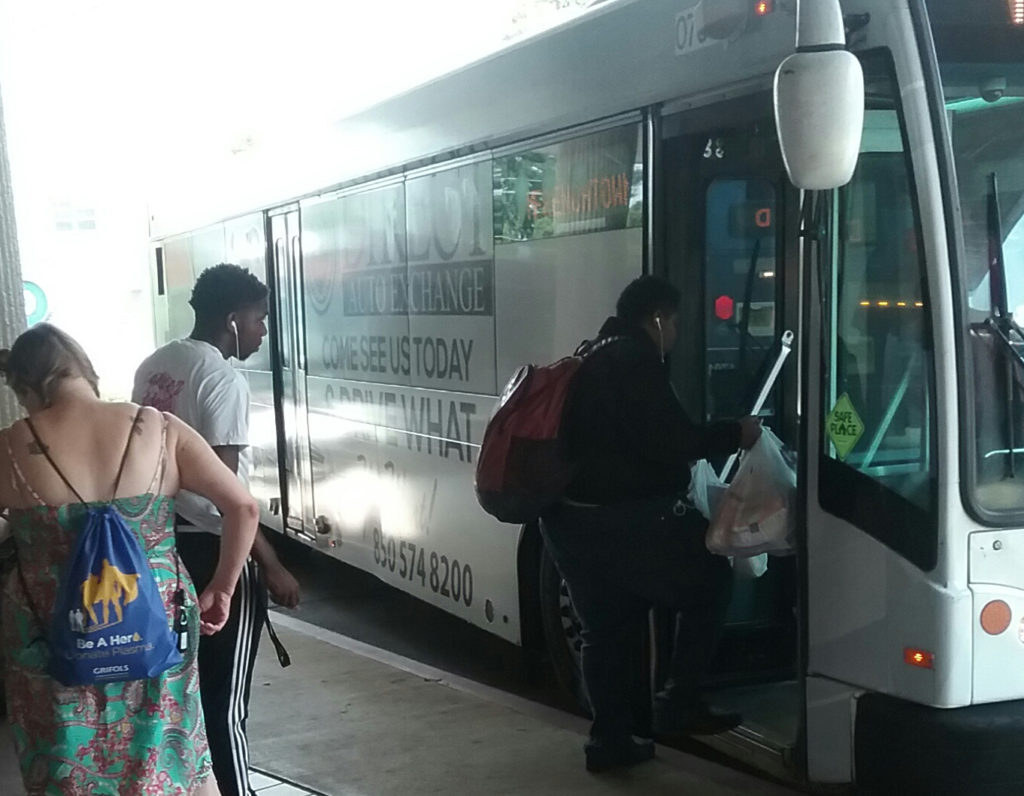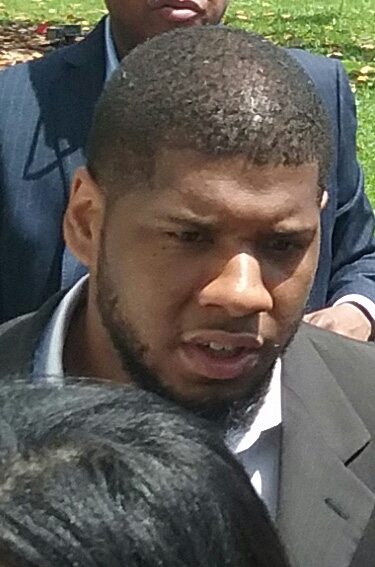
Celebration remembers women’s role in bus boycott

Star Metro gave free rides during the week commemorating Tallahassee’s bus boycott.
Photo by St. Clair Murraine

Rev. Derrick Mercer
By St. Clair Murraine
Outlook staff writer
Sixty-two years ago when Wilhelmina Jakes and Carrie Patterson staged a sit-in on Tallahassee’s city buses that changed the landscape of race relations in the city, it started a movement that thrust women into the spotlight as activists.
That fact was the overwhelming theme during a celebration of the 62nd anniversary of the boycott.
“It would be Black women on May 26, 1956 who declared enough is enough,” said Rev. Derrick Mercer, during a keynote address that had the tone of a sermon at Bethel Missionary Baptist Church two weeks ago. “I thank God for Black women because I understand there is no movement nor Black institution, including the Black church, that is able to survive without the strength, courage and labor of the Black woman.”
The celebration at Bethel was the first of several days of remembering the boycott, culminating with a symbolic walk to the overpass at Lake Anita. The public also got free passes to ride Star Metro buses on May 26.
When Patterson and Jakes, two FAMU students, boarded the city bus near the campus on South Adams Street, they sat on a front row in the section designated for Whites. They rebuffed the bus driver’s order to move to the back of the bus, eventually being arrested.
That set off a seven-month boycott that got national attention after several Black ministers, led by pastor C.K. Steele and others who formed the Inter-Civic Council as a support group.
Those who participated in the movement became known as foot soldiers, most of them women.
Mercer repeatedly hailed the contribution of Patterson and Jakes during his nearly 25-minute message.
“The Tallahassee boycott was sparked by two young Black women who had the courage to stand up against a system that was attempting to deny them their full humanity; a system that labeled them as inferior, a system that labeled them as insignificant, a system that deemed them as worthless, evil and dangerous,” he said.
Historically women weren’t in the forefront of the civil rights movement because of concern for their safety, said Keith Parker, a sociology and criminal justice professor at FSU. However, Parker said, women did a lot of the strategizing and organizing in the movement, while the men were in the forefront.
Mercer also encouraged young people to begin stepping up for a place in the civil rights movement, pointing out that both Patterson and Jakes were college students. He pleaded with young people in the audience to follow suit.
“They weren’t elderly sisters; they were college students,” he said. “Young adults who were courageous enough to take a stance; to make a difference. I believe that if sister Jakes and sister Patterson were here tonight they would tell some young person that you don’t have to wait until you are older to make a difference.
“You don’t have to wait until you’re an adult to make an impact. You can make an impact on this world right now.”
Women also played a role in keeping cohesion in the movement, something that’s necessary for success, Mercer said.
“The boycott teaches that only when we are willing to transcend our ego (and) only when we are willing to set aside our personal preferences, agendas and differences will we be a powerful enough force to break the chain of White supremacy and injustices. I’m convinced that nothing is able to stand against a people who are united and of one accord.”







